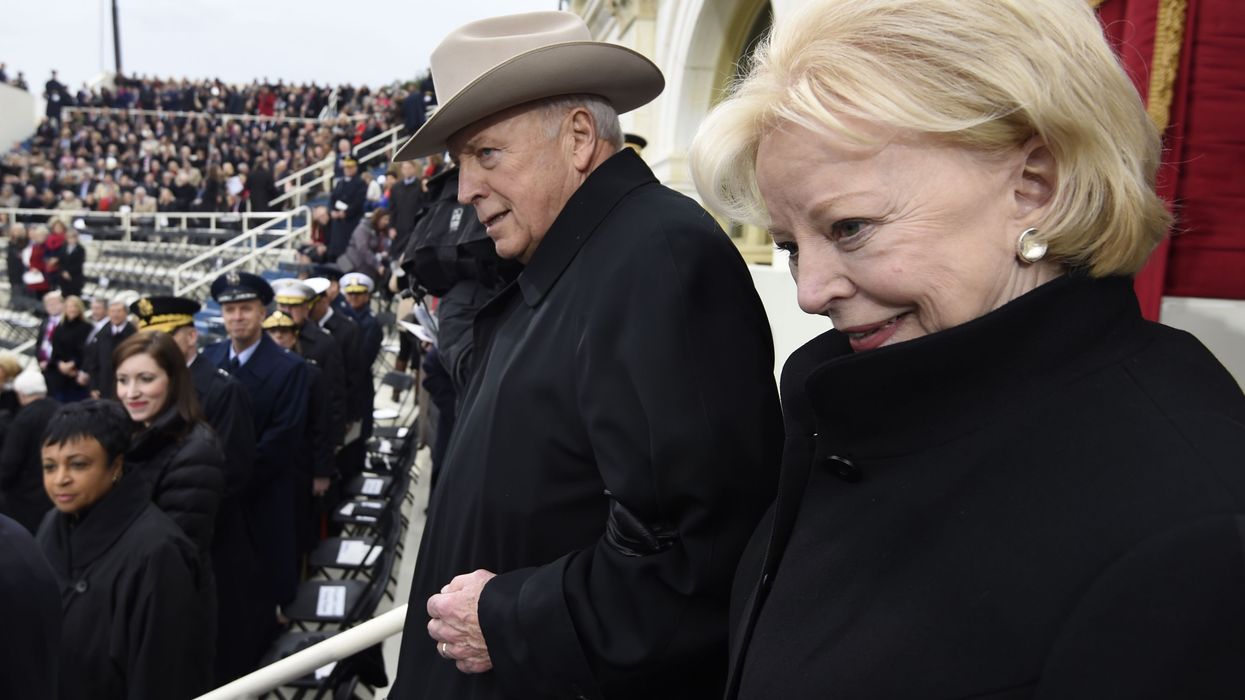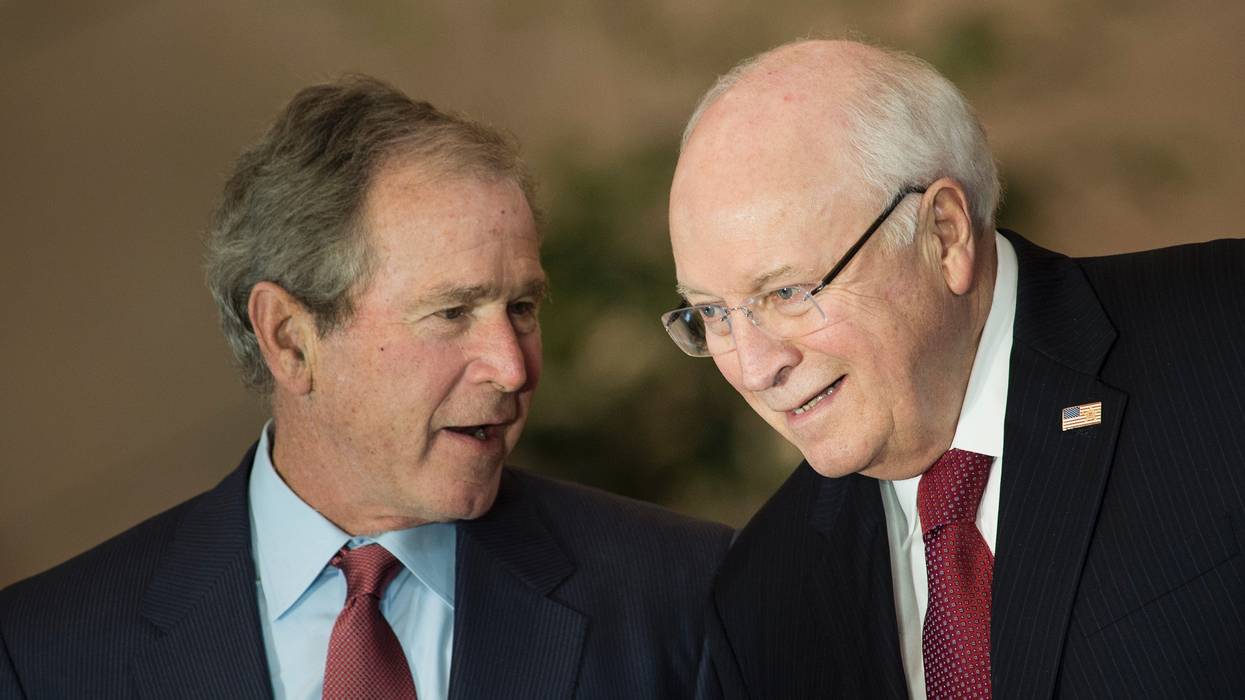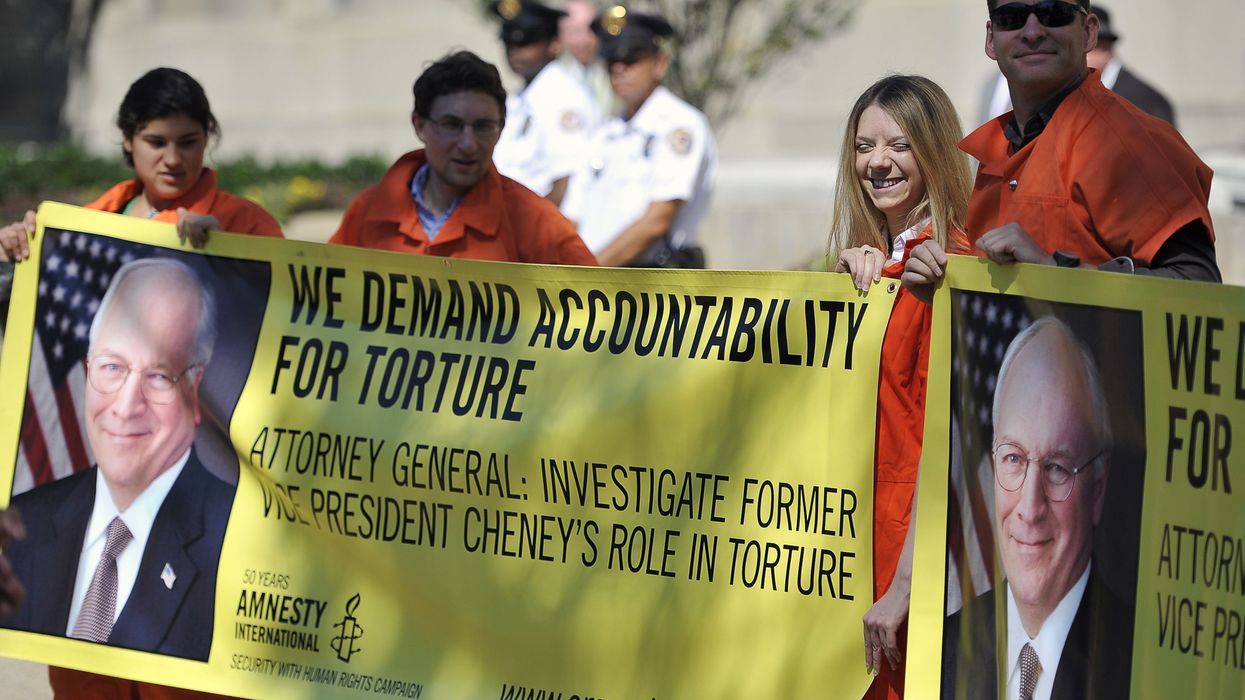On Cheney, Trump, and the Nature of Violence
As a nation, as a unified planet, we need to create a future that’s bigger than Trump, bigger than Cheney—bigger than what they could imagine in terms of global politics and power.
Let him rest in... peace?
I don’t know. The irony of those words is a little too much for me to grasp as I sit here contemplating the death of Dick Cheney at age 84. Cheney, mastermind and primary organizer on the “war on terror,” which, in a 20-year span of insanity, cost the United States some $8 trillion and killed (murdered) nearly a million people, according to Brown University’s Costs of War Project.
And as though that total weren’t high enough, the project notes that this number is very much an undercount, since it doesn’t include indirect deaths of the war caused by “disease, displacement, and loss of access to food or clean drinking water.”
Revisiting these numbers in the wake of Cheney’s death throws some horrific complexity into the present-day news, that is to say, the authoritarian activities of the Trump administration: Sending Immigration and Customs Enforcement to invade American cities, bombing small boats off the coast of Venezuela, cozying up to authoritarian leaders around the globe and, of course, staying in sync with the Israeli devastation f Gaza.
Trump is just the next step in the violent nation we’ve created: the unhinged step.
President Donald Trump is such an unconstrained blowhard and fascist wannabe, totally open about his desire to arrest, deport, pepperspray, and eliminate every American who dares protest or comedically belittle his policies, that Sen. Bernie Sanders (-Vt.) recently wrote:
This may be the most consequential moment in American history since the civil war. We have a megalomaniacal president who, consumed by his quest for more and more power, is undermining our constitution and the rule of law.
We’re on the verge of losing our country, losing our democracy! I hear it. I feel it. We’re at the edge of a political cliff. But then, in the wake of Dick Cheney’s death, the Bush administration slips back into my awareness and I suddenly find myself plummeting into concern and horror that transcends Trump. Trump has yet to do anything equal to the military hell these guys inflicted on the world, or even equal to their pompous rhetoric about the “axis of evil” they were intent on destroying.
And George W. Bush and Cheney were anti-Trumpers, for God’s sake, furious that Trump took their party away from them. Is this the sin of Trump—taking away not so much our wars but the political correctness in which we swathed them? Trump is an impulsive blatherer, speaking in ordinary-guy language, spewing out whatever he’s thinking in the moment. Yeah, he’s a scary jerk, utterly untrustworthy, but is what we had before him somehow better? Are the monstrous wars—the terror—we’ve waged throughout my lifetime what we want to return to?
I guess what I’m saying is that Trump is just the next step in the violent nation we’ve created: the unhinged step. He’s loosened himself from all sense of political dignity and is free to dance before the world to “YMCA” He’s committed to trashing our Constitution and making himself Boss-in-Chief, but he loves, and is as subservient to, money as any political leader who has preceded him.
All of which leads me back to the book I’m still in the process of writing. As a nation, as a unified planet, we need to create a future that’s bigger than Trump, bigger than Cheney—bigger than what they could imagine in terms of global politics and power. That is to say, we need to create a world that knows how to wage peace. Please understand, in no way do I see this as a simple process. We are creating peace in small fragments all across the planet, but collectively we continue to organize around domination, violence, and dehumanization.
Let me put forth one small piece of the book, which begins to address the nature of violence. I begin by quoting journalist and peace activist Colman McCarthy, who once asked: Why are we violent but not illiterate? This question stuck in my soul.
In the book I wrote: We’re taught to read, of course. The implied analogy here is that violence is the same thing as illiteracy, which is nothing in and of itself, a void, a lack of knowing. Is violence also nothing in and of itself, simply the absence of knowing how to behave with calm rationality and creative compassion? Certainly that doesn’t seem to be the case. To behave with violence, at least with a high level of violence, requires a great deal of knowing. Nations couldn’t go to war if they didn’t have the capacity to organize armies and equip them with up-to-date weaponry; to do this requires an extraordinary amount of “violent literacy,” you might say.
But there is a void of knowing—or perhaps more accurately, a void of control—that surrounds violence. Unlike illiteracy, however, violence has a positive sense of itself. In retrospect, violent behavior may be defended as self-protective and necessary, but in the actual act of it, I believe violence is an abdication of self-ownership, an abdication of everything that is godlike within us: an abdication of our vulnerability. And this abdication is collective...
So why are we violent but not illiterate? Once we’re taught to read, illiteracy is no longer possible or even, in a personal sense, imaginable. Reading isn’t simply a “protest” against illiteracy; reading and writing are steps from nothing to something, channeling spoken language into a world of entirely new possibilities. So what is the nonviolent equivalent of literacy? It’s not protests in the streets; it’s not a countermovement symbolized by peace signs and clenched fists. It’s not a futile demand for an end to violence. What the world needs, and what the New Story must present to us, is the means to evolve beyond violence, in the process reducing violence, in our minds, to the equivalent of illiteracy.
The trans-violent equivalent of literacy must be both intuitive and externally structured; it must be taught. And, indeed, many such systems already exist. The problem is, they don’t reduce simply and easily to a story: a plot device. How is John Wayne atop the stagecoach, as cameras focus in, going to listen to the Apaches’ grievances, absorb the white man’s collective guilt, apologize and begin a journey of atonement? It’s so much easier, when telling a story, to remove one small, inconvenient aspect of reality—consequences—and portray violence as the tool of goodness and the solution to problems.
And thus we have the current world, trying to control its chaos by spewing out ever more state-ordered, state-financed redemptive violence, in the form of war, punishment, news, and entertainment.
Let me leave with a thought: Let’s make America great for the first time.

